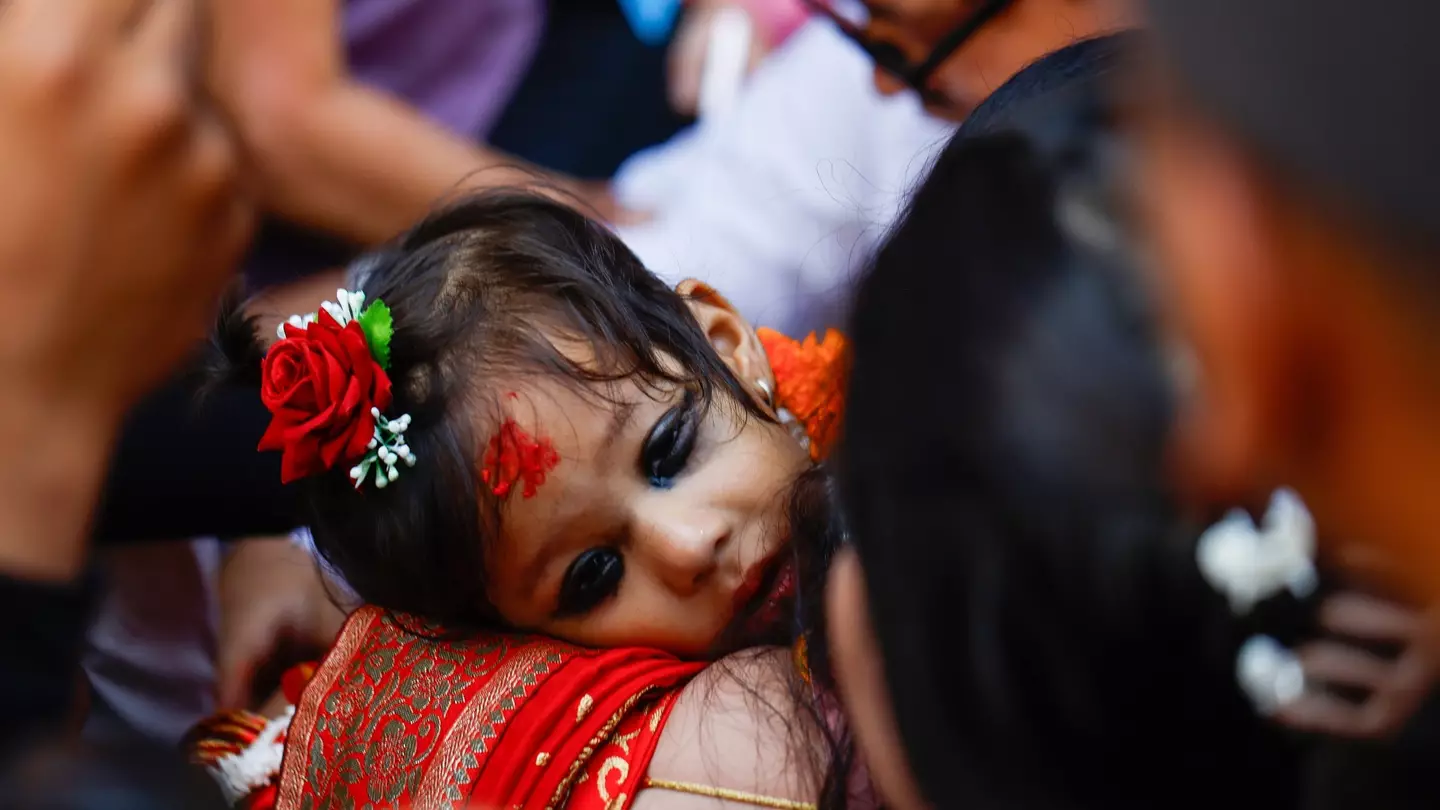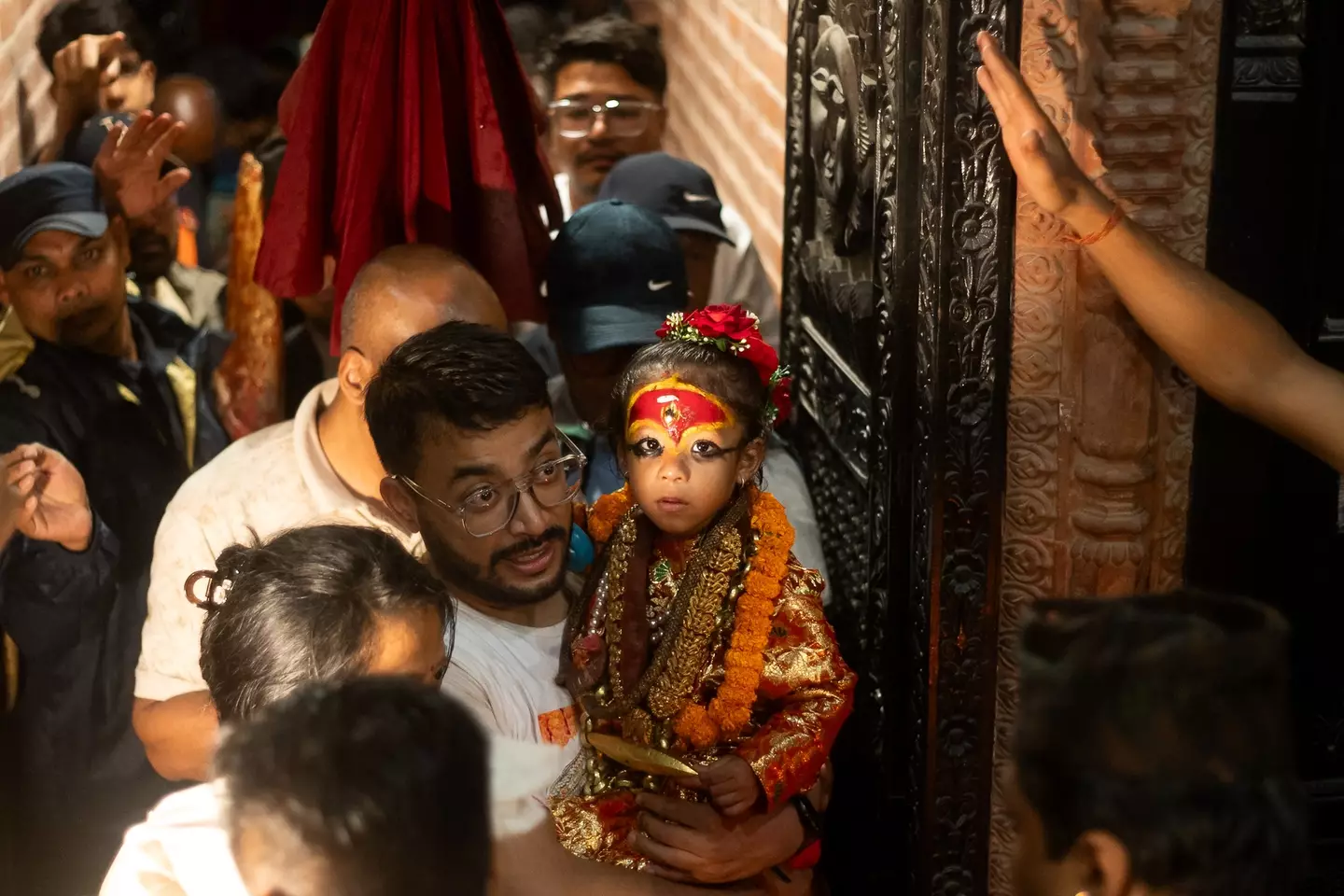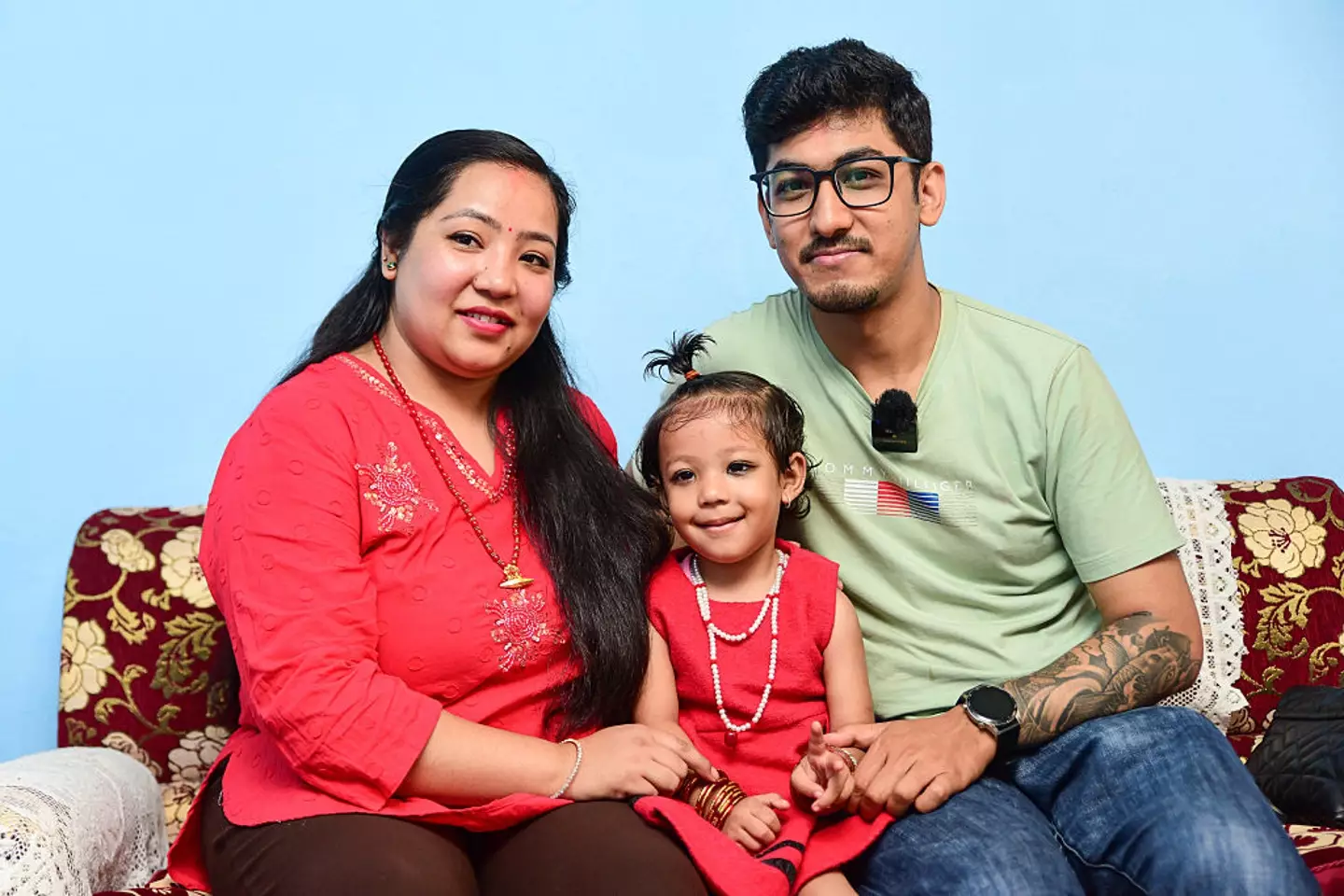
The family of the two-year-old girl who has been chosen as the new living goddess in Nepal will have very strict visiting arrangements.
Aryatara Shakya was selected at the age of two years and eight months as the new Kumari - or 'virgin living goddess' - to replace the previous Kumari, Trishna Shakya, who held the role until she reached puberty.
The toddler was carried by her family to a temple palace last week (30 September) during the country’s longest and most significant Hindu festival, and she is set to remain in the temple until she reaches puberty, at which point she will be 'mortal' again and leave the temple to live a regular life before being replaced by another young girl who meets the strict requirements.
Such requirements include hailing from the Shakya clan of the Newar community in the Kathmandu Valley and having unblemished skin, hair, eyes and teeth, as well as not being afraid of the dark.
Advert

According to legend, the tradition traces to a story involving King Jaya Prakash Malla and Goddess Taleju playing dice secretly; when the queen discovered this, the goddess vanished and vowed to be reborn as a girl in the community. Thus, girls matching her remembered form are selected.
The requirements are said to include 32 traits the girl must exhibit to be considered the reincarnation of the goddess.
But what does this mean for the toddler's family?
Well, while in the role, the 'living goddess' is only allowed to go out a few times a year, when she’s taken to special events and places, and only with authorised playmates.
The Metro reports such outings happen 'around 13 times a year' with the outlet noting that, when she is outside the palace, she is carried as her feet are not allowed to touch the ground.
From Tuesday (7 October), she will be formally installed at the historic Ghar Kumari House, where she will live away from her parents and twin brother.

Simultaneously, her family will gain access to a higher social standing within their clan due to her status.
Up until recently, the Kumari would spend most of her time in one room with no access to education and little information about the outside world - a situation which can make the transition back into the world difficult.
However, following pressure from human rights groups, this has now changed and the Kumari now reportedly receives a personal tutor and has access to books, magazines and the internet.
Topics: World News, News